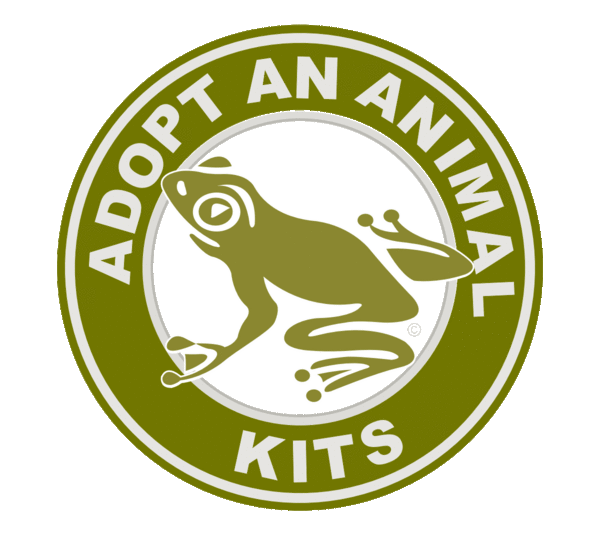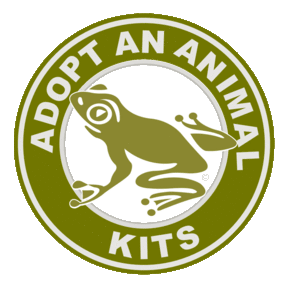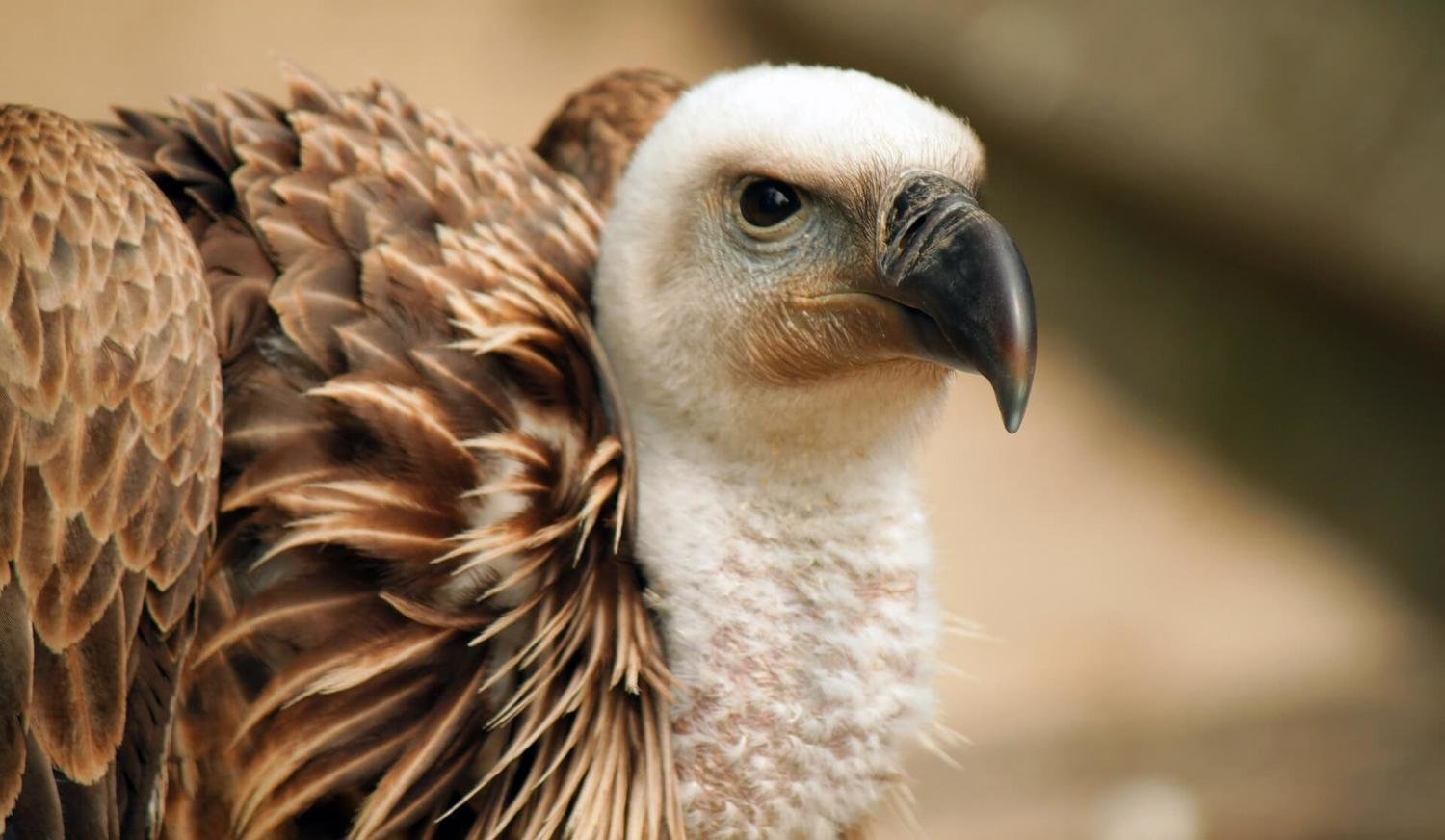

Adopt An Animal Kits
Adopt An Animal symbolically. Your Adopt An Animal Kit comes in a Deluxe Folder and includes: Glossy Photo of Your Adopted Animal; Adopt An Animal Adoption Certificate; Fact Sheet About Your Adopted Animal; Help Animals Info Cards Packed With Information On Animal Issues & How You Can Help Animals And The Environment. Adopt An Animal for Yourself or as a Gift.
Adopt A Vulture
Adopt A Vulture
Your Adopt A Vulture Kit comes in a Deluxe Folder and includes:
- Glossy Photo Of Your Adopted Vulture
- Adopt A Vulture Adoption Certificate
- Fact Sheet About Your Adopted Vulture
- Help Animals Info Cards Packed With Information On Animal Issues & How You Can Help Animals And The Environment
Adopt A Vulture Kits make great gifts and can be sent directly to the recipient. Simply supply the recipient's name and mailing address as shipping information. We'll even include a letter stating the Adopt An Animal Kit is from you.
Adopt An Animal symbolic adoption is a one time fee. Adopt an animal for yourself or order an Adopt An Animal Kit as a gift. Help make a difference for animals - Adopt An Animal Today!
Adopt A Vulture
Vultures are large, carnivorous birds well known for their scavenging nature. These incredibly intelligent birds help to keep the environment clean and prevent the spread of disease. They are found on every continent except the Antarctic, Australia and the surrounding islands. Vultures are classified into two groups, old world vultures and new world vultures. There are over two dozen species within these two groups.
Old world vultures inhabit Asia, Africa and Europe and are closely related to hawks and eagles. They are not closely related to the new world vultures. Old world vultures use sight alone to find food.
New world vultures inhabit the Americas. They are connected to old world vultures through evolutionary status rather than DNA. New world vultures are usually smaller than old world vultures. New world vultures find food sources with both sight and smell.
Vultures have wide wingspans that enable them to soar for extended periods without flapping their wings while looking for carrion. The Andean condor of South America is the largest vulture in the world. The crow-sized hooded vulture of Africa is the smallest vulture. The Rueppell’s griffon vulture is the highest flying bird in the world.
Most vultures have a large pouch in their throats called a crop. They have strong, curved beaks designed for ripping apart meat. Vultures have bare heads, and sometimes bare necks, to prevent bacteria and other parasites from burrowing into their feathers and to aid in thermoregulation. Germs on vultures heads are baked off by the sun.
All vultures prefer to scavenge for their food rather than hunt. Vultures feed on the remains of dead animals. They will attack wounded and dying animals when carcasses are not available. Vultures eat all parts of animal carcasses with the exception of bones. Vultures can go for long periods without food.
Vultures are able to consume carcasses that have rotted to the extent of being toxic to other animals, making vultures very important ecologically. Vulture stomach acids are able to kill harmful bacteria and viruses, and halt the potential spread of disease from rotting carcasses. Vultures often feed with other animal species. Old world vultures have strong feet, but new world Vultures have weak, flat feet poorly adapted for grasping. If they are not able to rip open a carcass themselves, they will wait for another predator to open it.
Vultures engage in urohydrosis, urinating on their legs and feet to stay cool. Vulture urine also kills bacteria or parasites picked up from carcasses.
Old world vultures are very vocal, making grunts, chatter, screeches and croaks. New world vultures can only make hissing and grunting sounds.
Vultures can be solitary birds or social birds. Groups of vultures often circle together looking for food sources from the sky above. Vultures have exceptional eyesight, able to spot a three-foot carcass from four miles away. When one vulture spots a carcass it begins to circle above, drawing the attention of other vultures. A group of vultures is called a committee, volt or venue. In flight, a flock of vultures is called a kettle. When feeding together, a group of vultures is called a wake.
Most vulture species mate for life. Vultures attract mates by soaring around each other. A male vulture will show off his flying skills by almost touching the female's wing tips. Old world vultures construct large stick platform nests on cliffs or in trees. New world vultures lay their eggs in bare scrapes in cavities in trees or cliffs. Female vultures lay 1 to 3 eggs, depending on the species. Vulture parents take turns incubating eggs and feeding baby vultures when they hatch. Chicks leave the nest or scrape in 2 to 3 months. They depend on their parents until they learn how to find food themselves.
Vultures vomit when threatened to deter predators and to make their bodies lighter to escape more easily. If the food is mostly undigested, the predator receives a free meal. If the food is mostly digested, the smelly substance deters predators and stings their eyes. Old world vultures also play dead when threatened.
Vultures can live up to 50 years in the wild.
THREATS TO VULTURES
Globally vultures are the most endangered type of birds. Some vultures are almost extinct and have declined by 99%. Nine species of vulture are critically endangered, three are endangered, and four are near threatened.
Poisoning from drugs, toxins and lead in carcasses is the largest threat to vultures. Vultures are also threatened by habitat loss, car collisions, wind turbines, electrical pylons, food loss and poaching. Vultures are often persecuted by farmers and ranchers who mistakenly believe vultures are a threat to livestock.
Adopt Adopt An Animal Kits
Our Adopt An Animal Kits are educational packets that allow you to symbolically adopt a favorite animal species and contain a variety of information promoting the protection of wildlife, companion animals, farm animals and the environment. By purchasing a symbolic adoption kit you will receive a packet of information regarding daily choices you can make to help the earth and animals.
Your Adopt An Animal Kit comes in a Deluxe Folder and includes:
Glossy Photo Of Your Adopted AnimalAdopt An Animal Adoption CertificateFact Sheet About Your Adopted AnimalHelp Animals Info Cards Packed With Information On Animal Issues & How You Can Help Animals And The Environment.
Adopt an animal for yourself or order an Adopt An Animal Kit as a gift. Symbolically adopting an animal is the perfect gift for a loved one who loves animals, and helps to promote the compassionate treatment of animals and respect for the environment by offering information on how to help the earth and animals. Adopt An Animal Kits can be sent directly to the recipient: simply supply the recipient's name and mailing address as shipping information. We'll even include a letter stating the Adopt An Animal Kit is from you.
Adopt An Animal Kits is a small, independent business not affiliated with any other business, non profit or charitable organization.
Fast Shipping!
Shipping time for Adopt An Animal Kits averages 2 to 4 business days - USA. Allow additional time for Adopt An Animal Kits orders outside the USA. Your Adopt An Animal Packet will arrive approximately 2 to 4 business days following shipping date. Shipping for Adopt An Animal Kits within the USA is by U.S.P.S. Priority Mail.
INTERNATIONAL ORDERS: Average shipping time for Adopt An Animal Kits outside of the USA is 5 to 14 business days, including Canada. International Shipping & Handling for Adopt An Animal Kits is by U.S.P.S. First Class Mail.
About Us

Adopt An Animal Kits, LLC
The world is teaming with an amazing diversity of animals. Some species are beautiful, others bizarre — but they all are important to the ecosystem and deserve our respect, compassion and protection. Unfortunately, many animal species are declining at a rapid rate as a result of irresponsible human activities. Habitat destruction, pollution, hunting, poor agricultural practices and changes in climate are among the threats faced by wildlife and domestic animals.
Adopt An Animal Kits, LLC is a small business who believes in promoting the advancement of compassionate living by educating the public about animal and environmental issues and what individuals can do to prevent cruelty to animals. Through our work, we strive to eliminate the prejudice of animals (speciesism) through educational efforts. Our business produces printed and printable educational materials available to individuals with an interest in earth and animal topics. Our Adopt An Animal Kits seek to educate and influence individuals on environmental and animal issues. The purchase of an Adopt An Animal Kit allows you to symbolically adopt your, or your loved one's, favorite animal species while promoting the protection of wildlife, companion animals, farm animals and the environment. Rather than adopting an indivdual animal, you are symbolicly adopting the species. Each kit contains a collection of information on how you or your loved one can make daily choices to help animals and the environment.
Our website provides an information portal regarding these issues. Information posted on the site is free of charge and available to anyone with an interest. Our printed and printable materials are available to individuals with an interest in earth and animal issues. We produce hundreds of fact sheets, flyers, and digital materials regarding environmental and animal issues. Most materials are available at no cost to anyone with an interest.
Adopt An Animal Kits, LLC is not a charitable or nonprofit organization.

